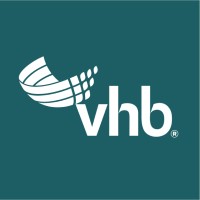FAQs
What is the primary focus of the Land Development Engineer position at VHB?
The primary focus is on shaping the future of cities and neighborhoods through impactful projects such as residential subdivisions and commercial developments, while working on site design, infrastructure planning, and regulatory compliance.
What qualifications are required for this position?
Candidates should have a Bachelor's degree in civil engineering or a related degree, 3-5 years of work experience, and knowledge of AutoCAD Civil 3D software. An Engineer-in-Training (EIT) certification is preferred, and prior land development experience is highly desired.
What skills are emphasized for the Land Development Engineer role?
The role requires excellent verbal, written, and interpersonal communication skills, the ability to work both independently and as part of a team, a high interest in water resources and stormwater management design, strong computer skills, and attention to detail.
Is fieldwork a part of the job?
Yes, the position involves performing field work either alone or in pairs, taking measurements and pictures.
What type of software is required for this role?
Knowledge of AutoCAD Civil 3D software is required for drafting plans.
What kind of culture does VHB promote?
VHB promotes a diverse and inclusive culture of collaboration and innovation, focusing on community and social responsibility while emphasizing learning, development, and career growth.
Are there opportunities for career advancement at VHB?
Yes, VHB emphasizes career growth and provides opportunities to work on complex, transformational projects.
Does VHB offer flexible working arrangements?
Yes, VHB provides a hybrid workplace, offering flexibility in work arrangements.
How does VHB approach diversity and inclusion?
VHB intentionally fosters a culture of diversity, equity, and inclusion, ensuring that all individuals are considered for employment without discrimination based on any protected characteristic.
What benefits does VHB provide?
VHB offers best-in-class benefits, including a flexible hybrid workplace and a focus on employee well-being and professional development.

